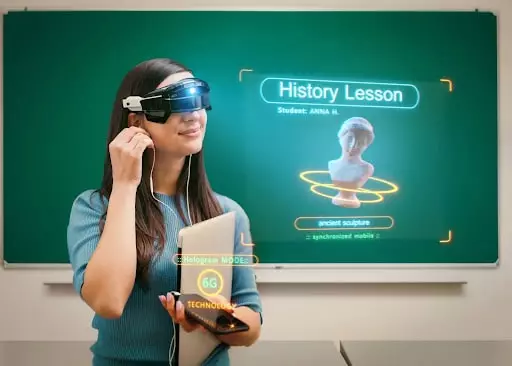The Covid-19 pandemic has revealed the flaws and limitations of the traditional education system. With unprecedented disruptions caused by the lockdowns and school closures, it is evident that change is necessary. Enter decentralized education, or DeEd, a movement that leverages decentralized technologies to create a distributed network of learners, teachers, and institutions. In this article, we will explore the transformative potential of DeEd and how it can overcome long-standing barriers in education.
One of the key advantages of DeEd is its ability to eliminate geographical and institutional boundaries. With just an internet connection, individuals can access educational resources from anywhere in the world. This opens up opportunities for individuals who may have previously been excluded from quality education due to their physical location. The democratization of education is a crucial step towards creating a more equitable society.
Gone are the days of one-size-fits-all approaches in education. DeEd revolutionizes the learning process by allowing learners to customize and personalize their curriculum. Instead of being confined to overcrowded classrooms and a rigid curriculum, individuals can choose subjects, modules, and techniques that cater to their unique needs and interests. This personalized learning experience enhances engagement and fosters a deeper understanding of the material.
DeEd harnesses the power of modern technologies to create innovative learning programs. Traditional pen-and-paper methods are being replaced by interactive and gamified learning experiences. Through gamification, students can learn through play, a technique that has proven to be highly effective across various industries. The integration of blockchain technology and artificial intelligence further enhances the learning process, ensuring transparency, security, and accessibility.
The job market is rapidly evolving, characterized by frequent career changes and technological advancements. DeEd addresses this shifting landscape by providing bespoke learning opportunities. Individuals can acquire the necessary skills and knowledge to adapt to new industries and job roles. Moreover, the rise of social media and interactive platforms enables the application of current communication methods to the learning process, enhancing collaboration and engagement.
Numerous projects are leading the way in the DeEd sphere, showcasing the immense potential of decentralized learning. For instance, TinyTap, an edtech project, offers a vast library of educational games in multiple languages. By venturing into the Web3 space, TinyTap introduces Publisher NFTs, which provide ongoing passive income to educators when their NFTs are engaged with. This innovative approach incentivizes educators and empowers them to monetize their efforts.
Another notable project is Hooked Protocol, a social learning platform that gamifies education and rewards users with cryptocurrency tokens for completing quizzes. This incentivization mechanism encourages active participation and creates a vibrant learning community. Open Campus, on the other hand, focuses on tokenization and community governance to monetize educational materials and empower teachers. By addressing key issues highlighted by the World Bank, such as the shortage of teachers and decision-making processes, Open Campus contributes to a more sustainable educational ecosystem.
While the potential of DeEd is promising, challenges still need to be addressed. Bridging the digital divide and ensuring equal access to technology and internet connectivity is crucial. Additionally, maintaining the quality and consistency of education in a decentralized system requires careful consideration. Onboarding users to unfamiliar technological platforms must be prioritized to ensure widespread adoption.
Education has long been overdue for disruptive changes, and decentralized learning presents an exciting future. By embracing DeEd, we can break down barriers, personalize learning experiences, and adapt to the ever-changing job market. Pioneering projects in the DeEd sphere are already showcasing the transformative power of decentralized education. However, challenges remain, and concerted efforts are needed to address them. The future of education lies in the hands of institutions, educators, and individuals who are willing to embrace the potential of decentralized learning for a more inclusive and fruitful educational landscape.

